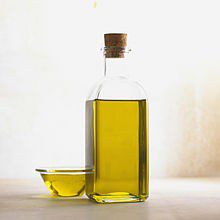The Best Oil Options

 Standing in the oil aisle of a grocery store can be intimidating. Virgin or regular? Extra virgin or just regular virgin? Refined or unrefined? What does that even mean?
Standing in the oil aisle of a grocery store can be intimidating. Virgin or regular? Extra virgin or just regular virgin? Refined or unrefined? What does that even mean?
Unrefined oils are extracted through a use of a machine that applies pressure, rather than by heat. They’re usually cold-pressed. This allows them to retain more flavour and a better nutrient profile. Refined oils are extracted using heat and are then bleached and deodorized. Opt for unrefined when you can.
The smoke point of an oil is the temperature at which it can be heated to before it starts to smoke. If you cook with an oil above its smoke point, it will leave a burned flavour to your food and can start to break down and release free radicals.
Smoke point: 450 degrees
Calories per tbsp: 120
Coconut oil is a tropical oil made from the flesh of coconuts. It has a high saturated fat content at 86 per cent, but this fat is made of medium-chain fatty-acids, while most fat sources in our diets are made of long-chain. This means they do not have to be broken down to be absorbed and are more efficient at providing energy to the liver, without the same storage in fat cells as long-chain fatty-acids.
Coconut oil is a semi-solid at room temperature, so you will have to heat it up a bit in order to cook with it. Check for an unscented, or “virgin” variety if you don’t love a coconutty smell.
Smoke point: 520 degrees
Calories per tbsp: 125
With the highest smoke point of any oil, avocado oil is the healthy choice for high temperature cooking. The oil boasts high levels of monounsaturated fats (the ones most associated with heart health) and antioxidants.
Though coconut oil has has a lot of attention lately, many nutritionists are touting avocado oil as the best option for health-conscious consumers, as it is unrefined and retains as many of its nutrients as possible.
Almond oil
Smoke point: 495 degrees
Calories per tbsp: 120
Almond oil is a great source of vitamin E (one tablespoon will provide you with 26 per cent of your daily needs). It has a 66 per cent monounsaturated fat profile, with only eight per cent saturated fat.
Olive oil
Smoke point: 200 degrees
Calories per tbsp: 120
Many of us use olive oil for frying, thinking we’re making a healthy choice. But, with a relatively low smoke point, heating olive oil beyond its capacity can cause it  to begin to break down and release free-radicals, which aren’t so healthy for us.
to begin to break down and release free-radicals, which aren’t so healthy for us.
Olive oil is still a great choice for homemade salads and dips, but if you’re cooking with high heat, we recommend an oil like avocado that is able to withstand the temperatures while retaining its stellar nutritional profile.
Walnut oil
Smoke point: 400 degrees
Calories in tbsp: 120
Like the nuts it is derived from, walnut oil is an excellent source of omega-3 fatty acids. Like the nuts, it is also a good source of antioxidants and adds a slightly nutty flavour.


